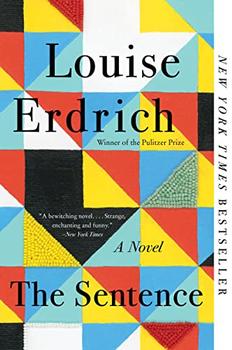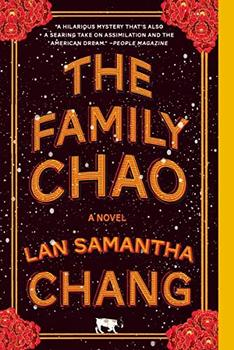Summary | Excerpt | Reviews | Beyond the book | Read-Alikes | Genres & Themes | Author Bio

From award-winning author Lysley Tenorio, comes a big hearted debut novel following an undocumented Filipino son as he navigates his relationship with his mother, an uncertain future, and the place he calls home.
Excel spends his days trying to seem like an unremarkable American teenager. When he's not working at The Pie Who Loved Me (a spy-themed pizza shop) or passing the time with his girlfriend Sab (occasionally in one of their town's seventeen cemeteries), he carefully avoids the spotlight.
But Excel knows that his family is far from normal. His mother, Maxima, was once a Filipina B-movie action star who now makes her living scamming men online. The old man they live with is not his grandfather, but Maxima's lifelong martial arts trainer. And years ago, on Excel's tenth birthday, Maxima revealed a secret that he must keep forever. "We are 'TNT'―tago ng tago," she told him, "hiding and hiding." Excel is undocumented―and one accidental slip could uproot his entire life.
Casting aside the paranoia and secrecy of his childhood, Excel takes a leap, joining Sab on a journey south to a ramshackle desert town called Hello City. Populated by drifters, old hippies, and washed-up techies―and existing outside the normal constructs of American society―Hello City offers Excel a chance to forge his own path for the first time. But after so many years of trying to be invisible, who does he want to become? And is it possible to put down roots in a country that has always considered you an outsider?
Thrumming with energy and at once critical and hopeful, The Son of Good Fortune is a luminous story of a mother and son testing the strength of their bond to their country―and to each other.
Excel's job and Maxima's online schemes are brimming with an absurdity that contradicts the romance of the American dream, showing a reality where the only viable options beyond superhuman achievement are illegal or questionable according to social mores. This reality has been acknowledged under a romantic spotlight in American crime dramas such as the TV series Breaking Bad. However, society's most marginalized, including undocumented immigrants more predisposed to desperate circumstances, are not often depicted with such a charming combination of relatability and guile when undertaking understandable criminal actions. In The Son of Good Fortune, Maxima's cons are not significantly romanticized, but neither is the reader denied the delight of watching her and her son building step by step towards a big joint scam...continued
Full Review
(765 words)
This review is available to non-members for a limited time. For full access,
become a member today.
(Reviewed by Elisabeth Cook).
 In The Son of Good Fortune by Lysley Tenorio, a friend of Maxima and Excel's named Roxy recalls the 1992 Pepsi Riots in the Philippines, saying, "Pepsi kills, believe me." When Excel comments that he has never heard of the riots, Roxy retorts, "Know your history." Excel, who was born on a plane between the Philippines and the U.S., believes that as someone who is neither fully Filipino nor American he has no need of either country's history. However, Roxy's reference to the riots, the violent result of Pepsi's mismanagement of its "Number Fever" contest, subtly calls attention to how the histories of the two countries are inextricably intertwined. It also leaves room for reflection on the consequences of American capitalism and ...
In The Son of Good Fortune by Lysley Tenorio, a friend of Maxima and Excel's named Roxy recalls the 1992 Pepsi Riots in the Philippines, saying, "Pepsi kills, believe me." When Excel comments that he has never heard of the riots, Roxy retorts, "Know your history." Excel, who was born on a plane between the Philippines and the U.S., believes that as someone who is neither fully Filipino nor American he has no need of either country's history. However, Roxy's reference to the riots, the violent result of Pepsi's mismanagement of its "Number Fever" contest, subtly calls attention to how the histories of the two countries are inextricably intertwined. It also leaves room for reflection on the consequences of American capitalism and ...
This "beyond the book" feature is available to non-members for a limited time. Join today for full access.

If you liked The Son of Good Fortune, try these:

by Louise Erdrich
Published 2022
In this stunning and timely novel, Pulitzer Prize and National Book Award–winning author Louise Erdrich creates a wickedly funny ghost story, a tale of passion, of a complex marriage, and of a woman's relentless errors.

by Lan Samantha Chang
Published 2022
An acclaimed storyteller returns with "a gorgeous and gripping literary mystery" that explores "family, betrayal, passion, race, culture and the American Dream" (Jean Kwok).
Great political questions stir the deepest nature of one-half the nation, but they pass far above and over the ...
Click Here to find out who said this, as well as discovering other famous literary quotes!